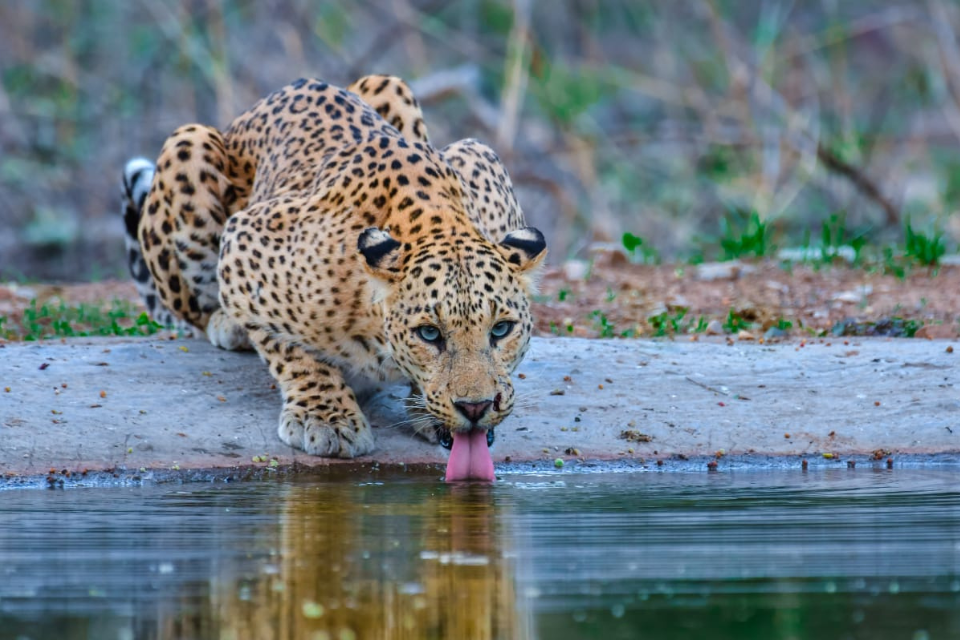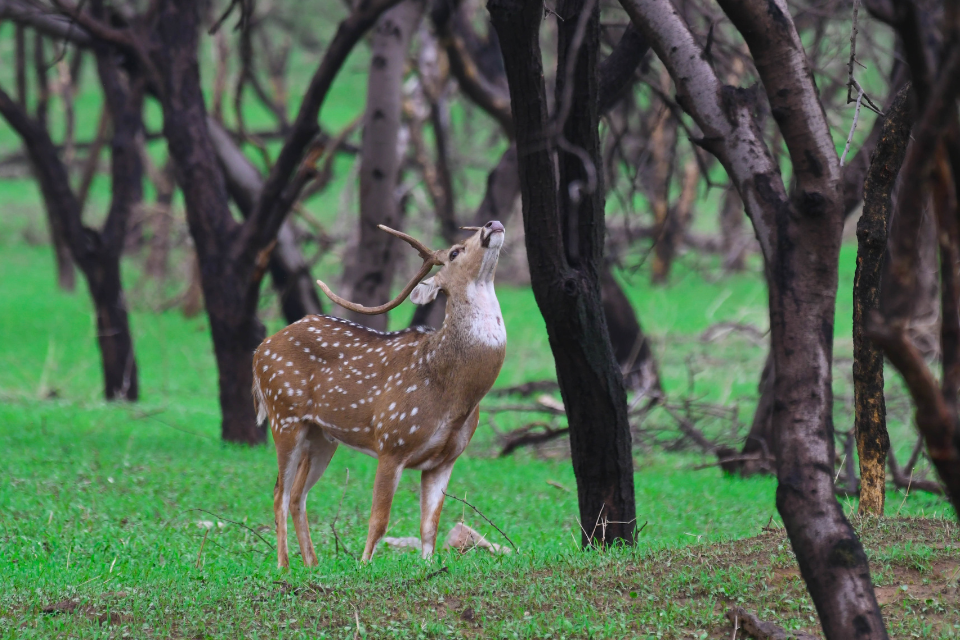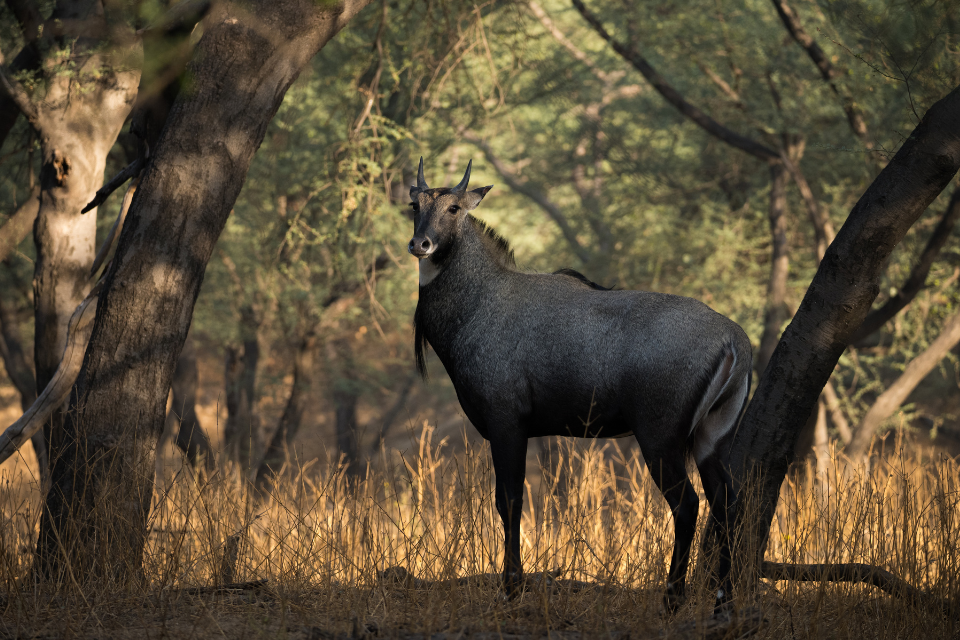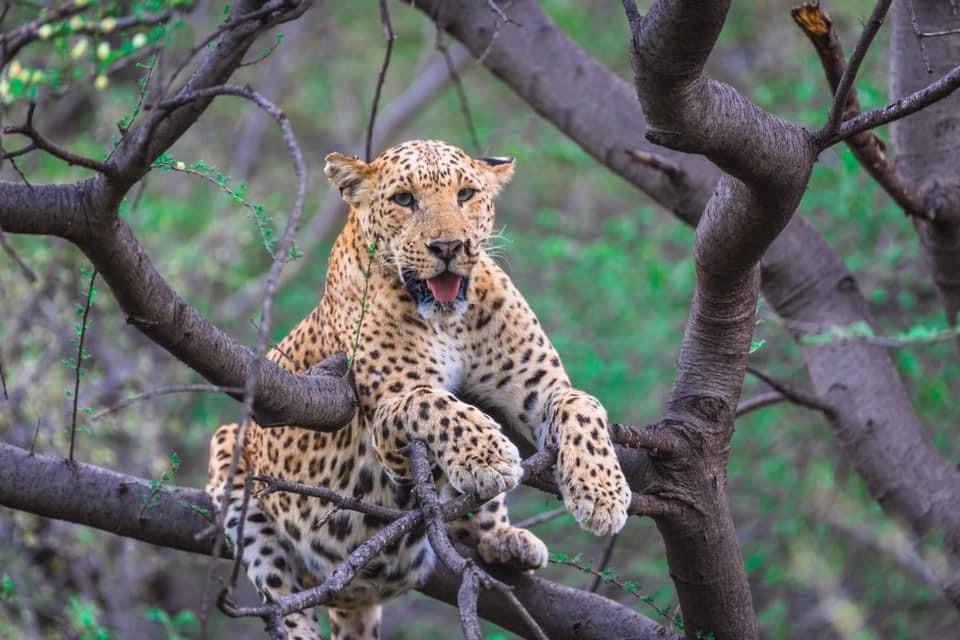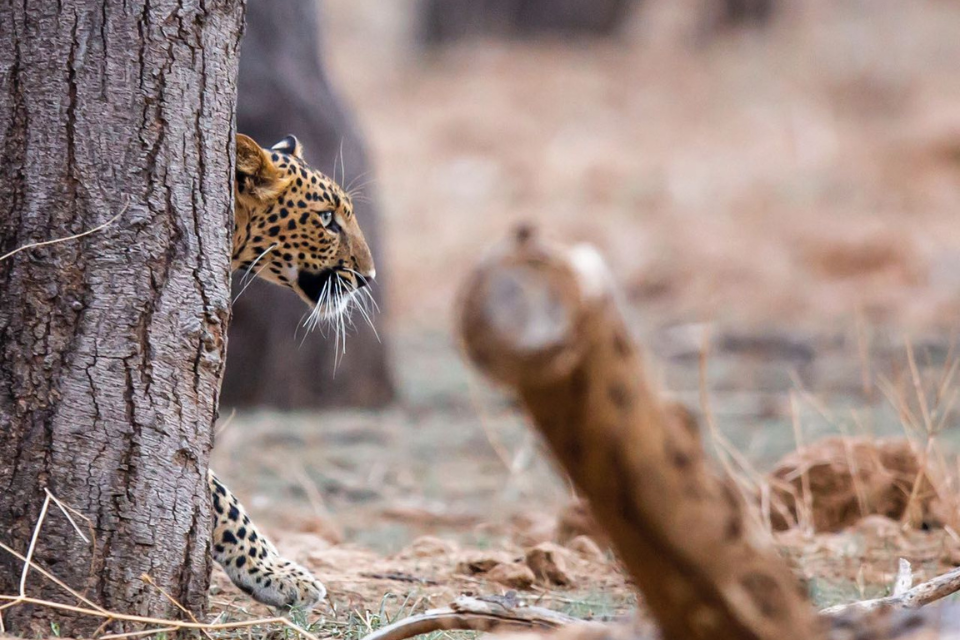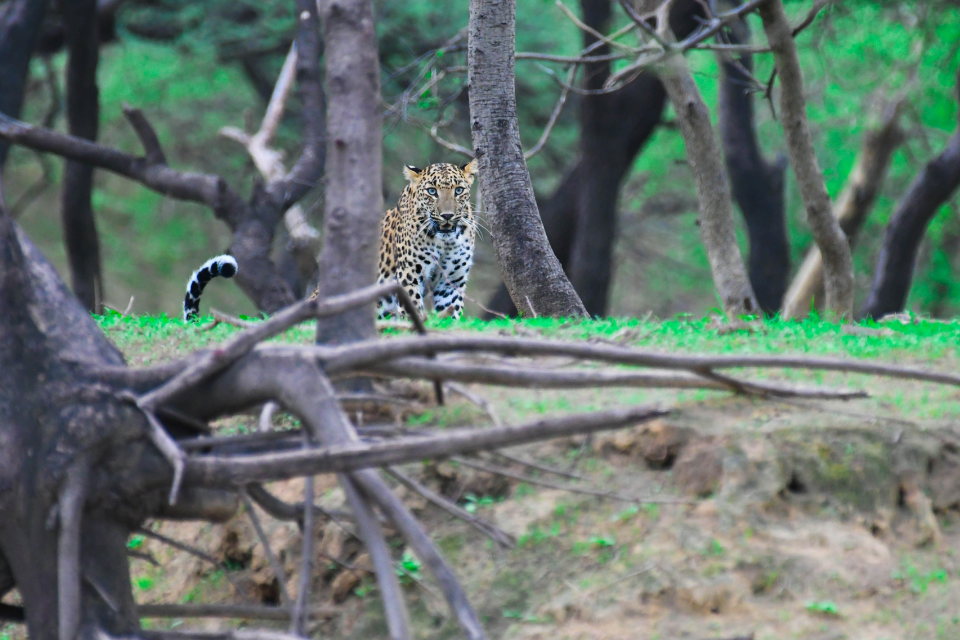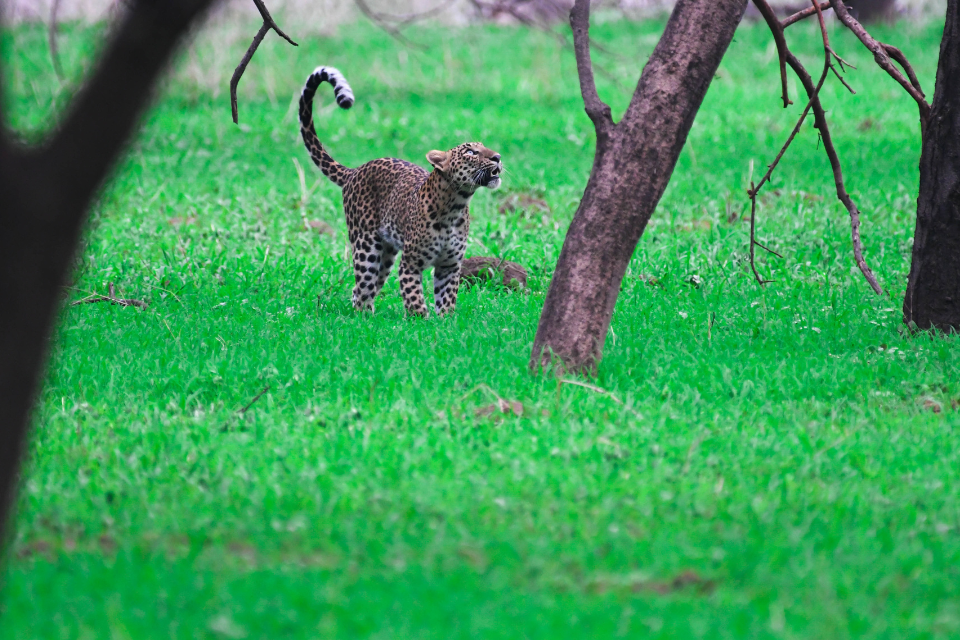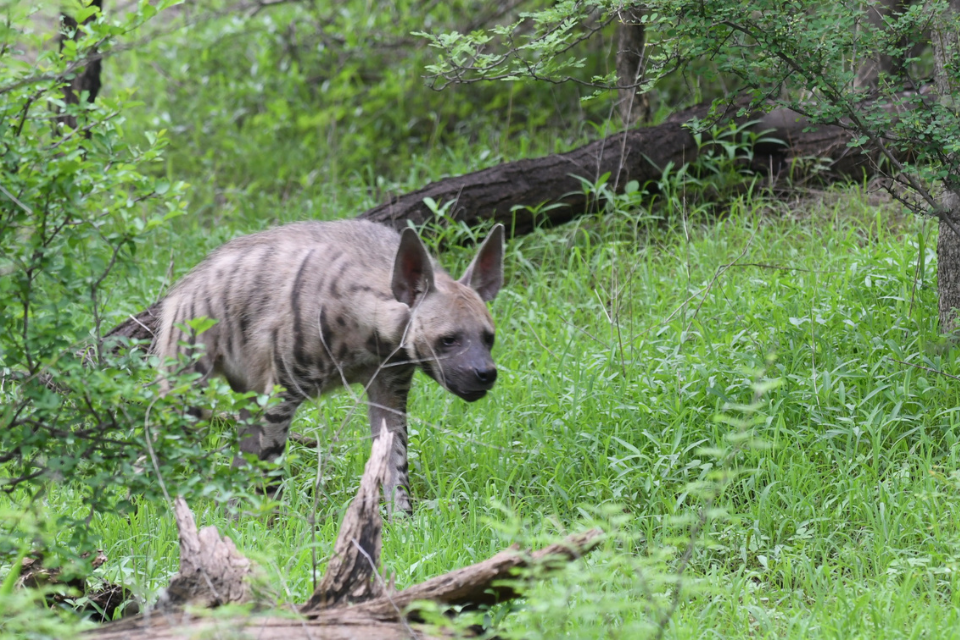- November 23, 2024
Eco-Friendly Safari Tips: Explore Jhalana Responsibly and Sustainably
Jhalana Forest Reserve, with its thriving leopard population and diverse ecosystem, serves as a beacon of hope for urban wildlife conservation in India. However, the survival of its leopards and other species is fraught with challenges, both natural and human-induced. As the reserve continues to coexist with the urban sprawl of Jaipur, addressing these challenges becomes essential for preserving Jhalana’s ecological balance.
Why Eco-Friendly Safaris Are Important
- Preserving Wildlife:
- Eco-friendly safaris ensure minimal disturbance to animals, allowing them to behave naturally in their environment.
- Protecting Ecosystems:
- Responsible tourism helps prevent habitat degradation, keeping the forest healthy for future generations.
- Sustainable Tourism:
- Reducing your ecological footprint on safaris promotes long-term tourism without harming the reserve.

Before Your Safari: Preparation Tips
- Book with Responsible Operators:
- Choose safari operators who prioritize sustainability, limit vehicle numbers, and follow forest guidelines.
- Pack Eco-Friendly Essentials:
- Reusable water bottles and eco-friendly snacks.
- Avoid single-use plastics, such as straws or plastic bags.
- Dress Appropriately:
- Wear neutral-colored clothing to blend in with the environment and avoid startling animals.
- Use sturdy shoes and hats for comfort during the safari.
- Carry Minimal Luggage:
- Avoid overloading vehicles with unnecessary items to reduce energy consumption.
During the Safari: Responsible Practices
- Stay Silent:
- Noise can disturb wildlife, so maintain a quiet environment to enhance your chances of sightings.
- Follow the Guide’s Instructions:
- Stay within designated areas and avoid urging guides to take off-route paths that may harm the forest.
- Respect the Animals:
- Maintain a safe distance from wildlife and never attempt to feed or provoke them.
- Avoid Littering:
- Keep all waste with you until you leave the forest.
- Minimize Flash Photography:
- Flash can startle animals and disrupt their natural behavior. Use natural light or high ISO settings instead.
Eco-Friendly Transport Options
- Electric Safari Vehicles:
- Support operators who use electric vehicles to reduce carbon emissions and noise pollution.
- Walking Safaris:
- Explore the forest on foot with trained guides for a low-impact, immersive experience.
- Carpooling:
- If electric vehicles aren’t available, opt for shared safari jeeps to reduce the number of vehicles in the forest.
Engaging Responsibly with Nature
- Observe, Don’t Interfere:
- Let wildlife follow its natural course—your role is to observe and appreciate.
- Spot Without Interrupting:
- Use binoculars for a closer look without disturbing animals or their habitat.
- Educate Yourself:
- Learn about Jhalana’s ecosystem, its flora, and fauna to develop a deeper connection with the reserve.

Post-Safari Practices
- Dispose of Waste Responsibly:
- Ensure any waste generated during the safari is disposed of in designated areas outside the forest.
- Promote Eco-Tourism:
- Share your experience responsibly on social media, encouraging others to adopt eco-friendly practices.
- Support Conservation Efforts:
- Donate to organizations working to protect Jhalana or participate in volunteer programs.
Special Tips for Photographers
- Use Eco-Friendly Gear:
- Carry rechargeable batteries and use digital storage to avoid waste.
- Be Patient:
- Let animals come into your frame naturally instead of trying to provoke movement.
- Avoid Off-Road Photography:
- Stick to designated paths to prevent damaging vegetation or disturbing wildlife.
How Visitors Help Preserve Jhalana
- Financial Contributions:
- Safari fees and donations fund conservation initiatives like habitat restoration and wildlife monitoring.
- Awareness Creation:
- Responsible tourists inspire others to appreciate and protect wildlife through stories and images.
- Community Empowerment:
- Supporting local guides and operators promotes eco-tourism and sustains livelihoods.

Eco-Friendly Safari Checklist
Do’s | Don’ts |
Follow park guidelines | Venture off designated trails |
Carry reusable bottles and containers | Use single-use plastics |
Stay quiet and respect wildlife | Make noise or feed animals |
Support sustainable operators | Book with operators ignoring eco-rules |
Conclusion
Exploring Jhalana Forest Reserve through an eco-friendly safari is not just about witnessing leopards and wildlife—it’s about preserving their habitat for future generations. By making conscious choices before, during, and after your safari, you contribute to the conservation of this unique ecosystem. Let your journey into Jhalana be a model of responsible tourism that inspires others to tread lightly and respectfully through nature’s wonders.
Disclaimer All images used in this blog are either sourced from public domain or credited to their respective owners. If you are the copyright holder of any image and wish to request its removal or proper attribution, please contact us at [email protected]



